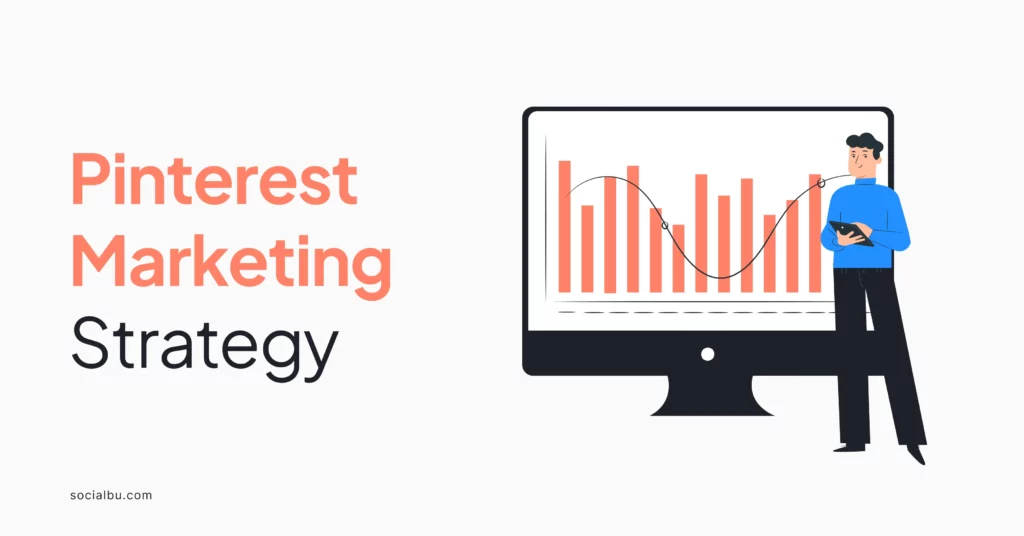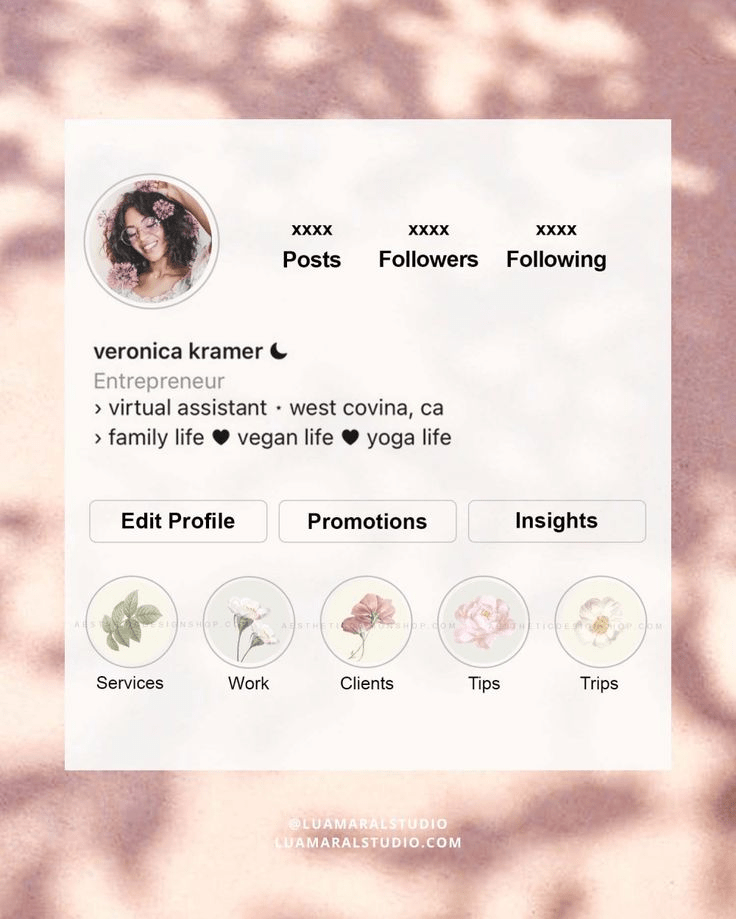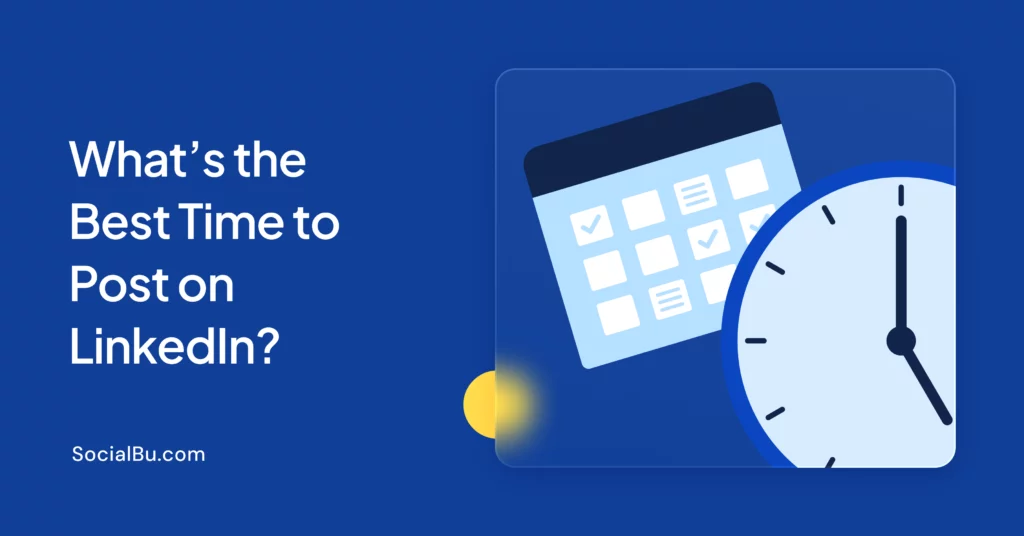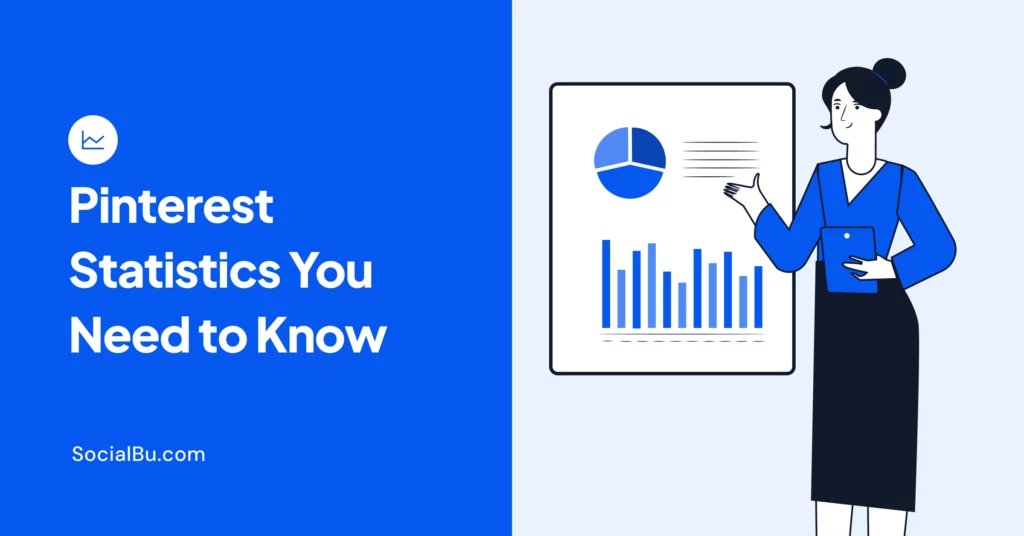Pinterest, the visual discovery and planning website, has become an essential platform for businesses to reach their target audience and drive website traffic. With over 322 million active users, Pinterest offers brands a vast potential for increasing their online visibility and engagement. However, you need an effective evergreen Pinterest marketing strategy to tap into this potential.
In this comprehensive guide, we’ll walk you through the steps to create a robust Pinterest marketing strategy that drives real results for your brand.
Understanding Pinterest’s Marketing Strategy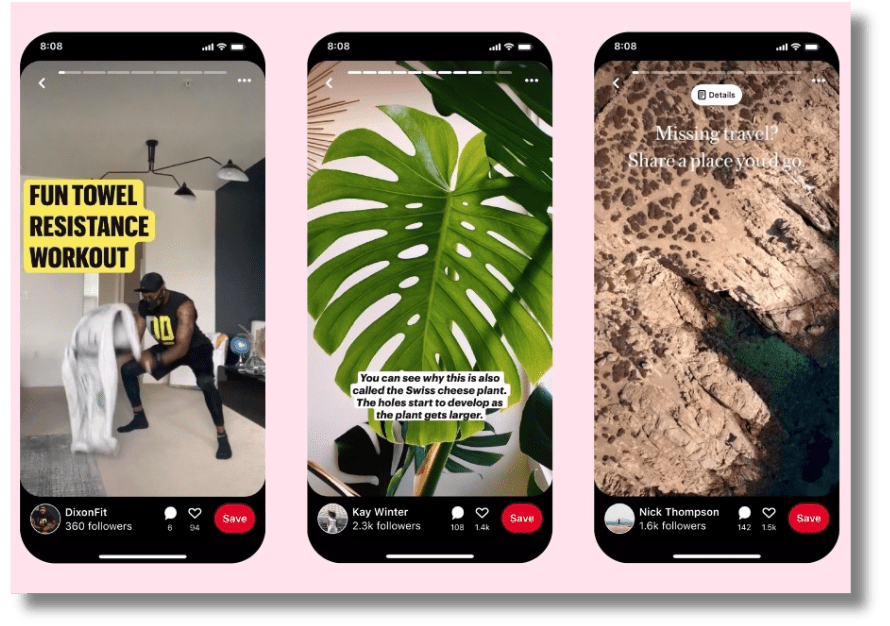
Before diving into specific strategies, it’s crucial to grasp what sets Pinterest apart from other social media platforms. Pinterest is a visual search engine where users, known as “Pinners,” come to find inspiration, plan projects, and discover products.
The platform’s algorithm is designed to surface relevant content regardless of when it was originally pinned, which means your content has the potential to gain traction and visibility months or even years after it’s first shared. This longevity makes Pinterest a powerful tool for brands looking to implement evergreen marketing strategies.
Unlike platforms like Twitter or Instagram, where the feed is chronological, and content quickly gets buried, Pinterest operates on a system of boards and pins that users can save and revisit at any time. This means that a well-crafted pin has the potential to continue generating engagement and driving traffic to your website indefinitely.
By understanding and leveraging Pinterest’s unique aspect, brands can create relevant and valuable content for their target audience over extended periods.
Gaining Insights into Your Target Audience on Pinterest
Before diving into Pinterest marketing, it’s crucial to understand your target audience and what they’re looking for on the platform.
Pinterest users are predominantly female, with most falling in the 25-45 age range. They use the platform to discover and save ideas for their lives, such as home decor, fashion, beauty, travel, and food.
To identify your target audience on Pinterest, ask yourself:
- What are their interests and hobbies?
- What problems do they face, and how can your brand solve them?
- What type of content do they engage with on Pinterest?
Use tools like Pinterest Analytics and Google Analytics to track audience insights and understand their behavior on your website. This will help you create content that resonates with your target audience and drives engagement.
Setting Up Your Pinterest Profile for Success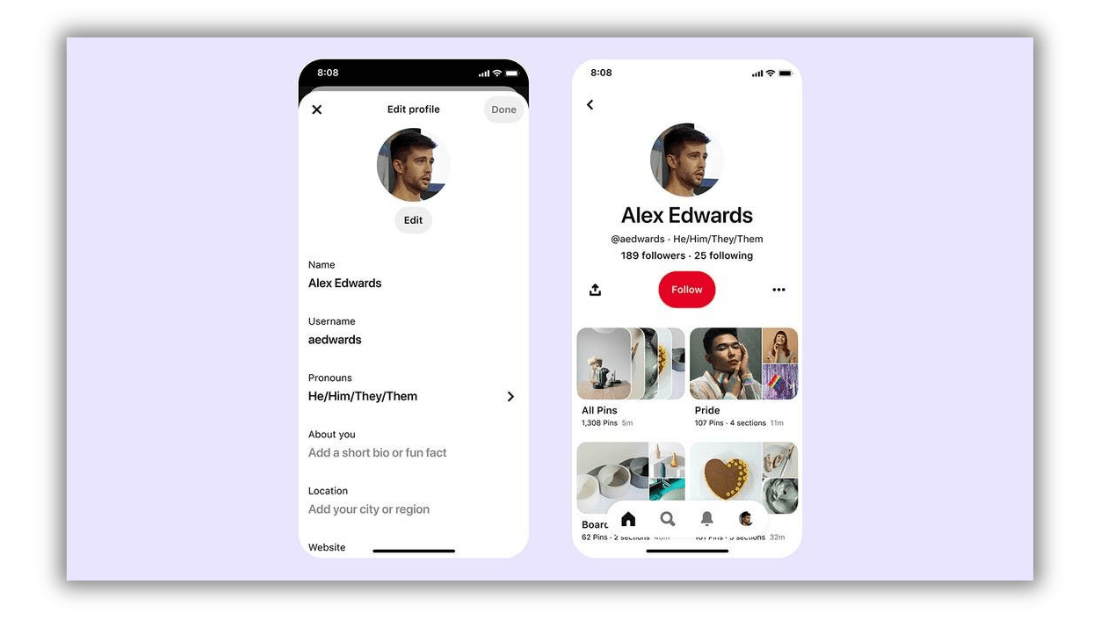
Your Pinterest profile is the first impression your brand makes on potential customers. A complete and optimized profile is essential to establish credibility and trust. Here are some tips to set up your Pinterest profile for success:
I understand. I’ll provide shorter versions of the expanded points while still retaining essential information:
1. Profile Picture
Your profile picture is often the first visual element users see when encountering your brand on Pinterest. Using your brand’s logo or a high-quality image that represents your brand is crucial for establishing instant recognition and maintaining consistency across different platforms.
If you’re using a logo, ensure it’s clear and legible, even in smaller sizes.
For brands without a logo, consider using a professional headshot of the company founder or a carefully chosen image that encapsulates your brand’s essence. The ideal dimensions for a Pinterest profile picture are 165 x 165 pixels.
2. Bio
Your Pinterest bio is a prime opportunity to make a solid first impression and communicate your brand’s value proposition. Craft a compelling bio that describes your brand and resonates with your target audience. Start by incorporating relevant keywords that align with your business and the content you share.
This helps improve your discoverability in Pinterest searches. Clearly articulate what makes your brand unique and what value you offer your followers.
Be concise yet informative – you have 500 characters, so make each word count. End your bio with a strong call-to-action (CTA) that encourages users to take a specific action, such as visiting your website, checking out your latest collection, or following your boards.
3. Website URL
Verifying your website on Pinterest is crucial in establishing your brand’s credibility and driving traffic to your site. The process involves adding a meta tag to your website’s HTML or uploading an HTML file to your server.
Once verified, your website URL will appear on your profile with a globe icon, signaling to users that this is your official website. This verification also enables you to access Pinterest’s rich pins feature, automatically pulling metadata from your website to enhance your pins with real-time information.
Additionally, verified websites gain access to more detailed analytics about how pins from your site are performing. This data can be invaluable in refining your Pinterest strategy and understanding which content resonates most with your audience
4. Boards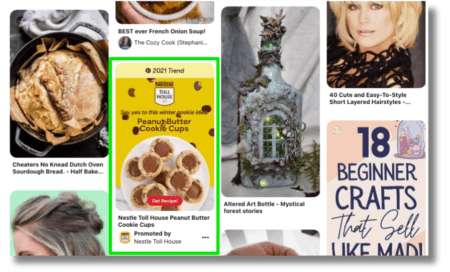
Organizing your content into relevant, well-structured boards is essential for user engagement and discoverability on Pinterest. Think of your boards as curated collections that showcase different aspects of your brand or cater to various interests of your target audience.
Start by brainstorming topics that align with your brand and resonate with your audience.
Create a mix of broad and specific boards to cater to different search intents. For example, a fashion brand might have broad boards like “Summer Styles” alongside more specific ones like “Sustainable Denim Collections.”
5 Evergreen Pinterest Marketing Strategies for Businesses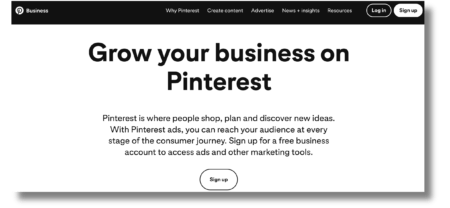
Pinterest is a powerful social media platform that offers a range of benefits for businesses of all sizes and industries. You can increase your online visibility, engagement, and website traffic by leveraging these five evergreen Pinterest marketing strategies.
1. Sign Up for a Business Account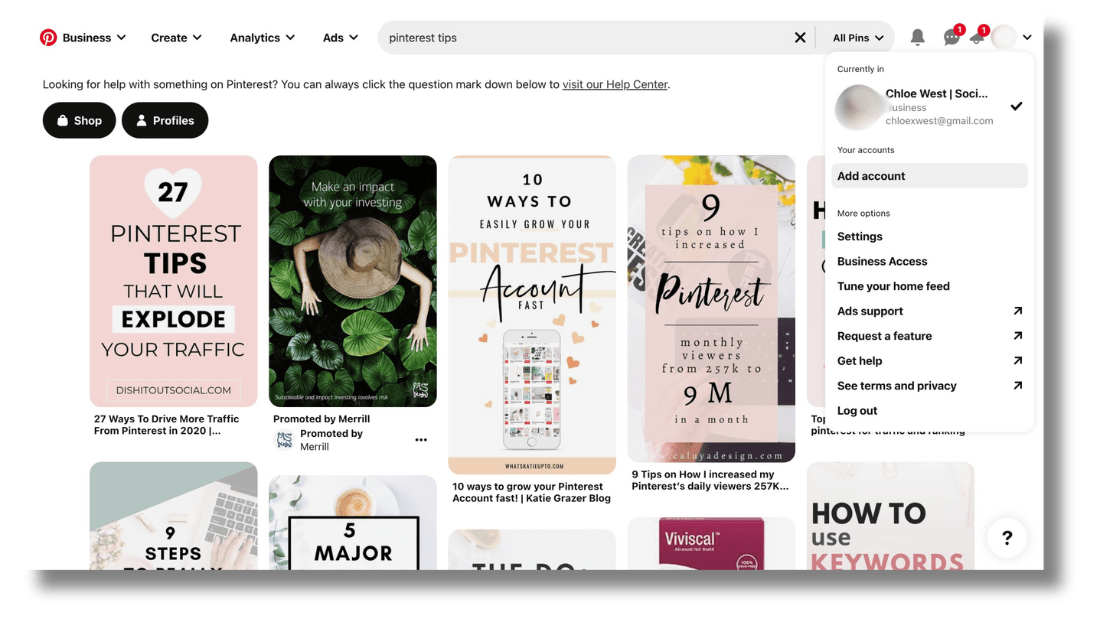
The first step towards an effective Pinterest marketing strategy is creating a business account. Unlike personal accounts, business profiles on Pinterest offer powerful tools and analytics essential for any serious marketing effort.
When you sign up for a business account, you gain access to Pinterest Analytics. This tool provides valuable insights into your audience’s behavior, preferences, and engagement patterns. This data is crucial for refining your strategy and maximizing your impact on the platform.
Moreover, a business account allows you to claim your website, enabling rich pins that automatically pull information from your site to enhance your pins. This feature saves time and ensures consistency in your branding across platforms.
2. Leverage Keywords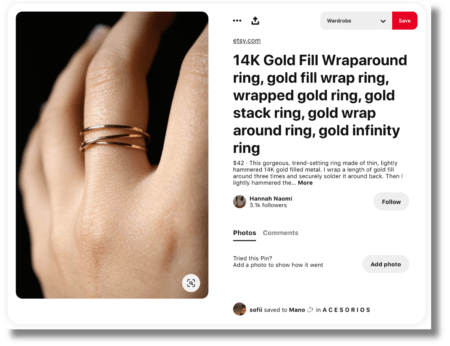
Keywords are the backbone of Pinterest’s search functionality, making them crucial to your marketing strategy. Unlike hashtags, which play a minor role on Pinterest, keywords in your pin titles, descriptions, and even the text on your images help Pinterest understand and categorize your content, making it discoverable to users searching for related topics.
Start by conducting keyword research specific to Pinterest. Look at what terms your target audience is searching for within your niche. Pinterest’s search bar can be a great tool for this – start typing a relevant term and see what autocomplete suggestions come up.
3. Choose the Right Categories for Your Content
Selecting appropriate categories for your content is a critical aspect of your Pinterest marketing strategy that can significantly impact your visibility and reach. Pinterest uses a system of categories and subcategories to organize content, making it easier for users to discover pins relevant to their interests.
By correctly categorizing your pins and boards, you increase the likelihood of your content appearing in relevant searches and recommendations.
When choosing categories, think from your audience’s perspective. What topics would they be browsing when they might come across your content? Don’t just consider your product or service directly, but also related lifestyle categories that align with your brand values and target audience’s interests
4. Use Unique Images and Videos
In the visually-driven world of Pinterest, the quality and uniqueness of your images and videos can make or break your marketing efforts. Pinterest users are drawn to visually striking, original content that stands out in their feeds.
Generic stock photos or low-quality images are likely to be scrolled past, while eye-catching, professional-looking visuals can stop users in their tracks and encourage engagement.
Invest time and resources into creating high-quality, original images and videos that reflect your brand’s aesthetic and values.
5. Share Your Content on Other Social Networks
While Pinterest is a powerful platform in its own right, integrating it with your broader social media strategy can significantly amplify your results. Sharing your Pinterest content across other social networks increases its visibility and drives traffic back to your Pinterest profile, potentially growing your follower base.
When sharing Pinterest content on other platforms, consider each network’s unique characteristics and audience expectations. For instance, you might share a teaser image with a catchy caption and a link to the full pin on Twitter.
Pinterest for Small Businesses
Small businesses can leverage Pinterest’s unique features to boost their online presence, drive traffic, and increase sales. Here are three key strategies that small businesses can implement to make the most of this visual platform:
1. Creating Shoppable Pins
Shoppable pins are a game-changer for small businesses looking to drive direct sales from Pinterest. These pins allow users to purchase products without leaving the platform, reducing friction in the buying process. To create shoppable pins:
- Set up a Pinterest business account and get approved to shop.
- Upload your product catalog to Pinterest.
- Tag products in your pins, allowing users to see pricing and availability.
- Ensure your product images are high-quality and appealing.
- Write compelling descriptions that include relevant keywords.
Shoppable pins can significantly increase your conversion rates by making it easier for interested users to purchase directly from your pins.
2. Leveraging Local SEO on Pinterest
For small businesses with a physical location, optimizing for local searches on Pinterest can help attract nearby customers. To improve your local SEO on Pinterest:
- Include your location in your profile and board descriptions.
- Create boards specifically for local events or attractions in your area.
- Use location-specific keywords in your pin descriptions.
- Pin content related to local landmarks, events, or topics of interest.
- Engage with other local businesses and influencers on the platform.
By focusing on local content, you can attract users in your area who are more likely to visit your physical store or use your local services.
3. Utilizing Pinterest’s Analytics for Growth
Pinterest provides robust analytics tools to help small businesses understand their audience and optimize their strategy. Key metrics to focus on include:
- Top performing pins: Identify what content resonates most with your audience.
- Audience insights: Understand the demographics and interests of your followers.
- Website traffic: Track how many visitors Pinterest is driving to your site.
- Conversion rates: Monitor how many Pinterest users are making purchases.
Streamline Your Pinterest Management with SocialBu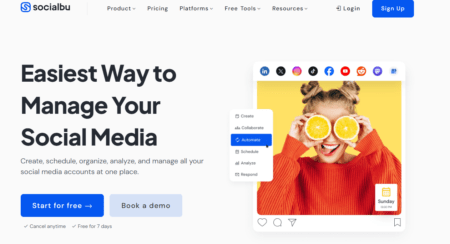
Managing a successful Pinterest account can be time-consuming, especially for small businesses or individuals with limited resources. That’s where SocialBu comes in – a comprehensive social media management tool that simplifies your Pinterest strategy and saves you time.
Key Features of SocialBu for Pinterest Management
- Schedule Pins: Plan and schedule your pins in advance to maintain a consistent presence
- Content Library: Store and organize your content in one place for easy access
- Pinterest Analytics: Track your performance and adjust your strategy accordingly
- Content Suggestions: Get inspiration for new content with SocialBu’s suggestion feature
- Team Collaboration: Invite team members to collaborate and manage your Pinterest account
By incorporating SocialBu into your Pinterest workflow, you can save time, increase efficiency, and achieve better results.
Ready to maximize your Pinterest potential? Sign up for a free 7-day trial!
Conclusion
Developing an evergreen Pinterest marketing strategy is essential for long-term success. By focusing on timeless content, understanding your audience, and continuously optimizing your approach, you can ensure that your brand remains relevant and engaging on the platform.
Pinterest’s unique visual nature and search-driven interface make it an ideal place to build a lasting connection with your audience. As you implement these strategies, remember that consistency is vital. Regularly review your performance metrics, stay updated on platform trends, and be ready to adapt your tactics as needed.
With dedication and creativity, your brand can thrive on Pinterest, driving sustained traffic, engagement, and growth for years.
